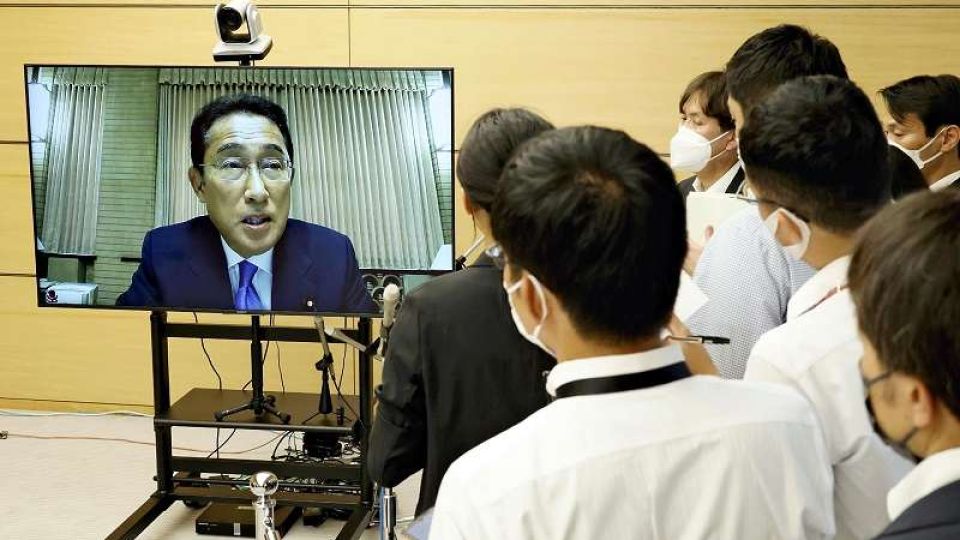August 25, 2022
TOKYO – The government plans to revise its policy on the tracking of COVID-19 cases, Prime Minister Fumio Kishida announced Wednesday.
“In areas where fever outpatient clinics and public health centers are under considerable pressure, as an emergency measure, local governments will be able to limit the scope of [comprehensive] patient reports to the elderly and those at risk of developing serious conditions,” Kishida said during an online press conference.
Kishida also said the government will relax border measures, conditionally removing the need to present a negative COVID test result when entering the country.
With the number of coronavirus cases remaining high, the government decided it was necessary to reduce the burden on medical institutions by stopping detailed tracking of all COVID cases.
The government plans to revise relevant provisions of a Health, Labor and Welfare Ministry ordinance as soon as possible, according to sources.
Under article 12 of the Infectious Disease Control Law, doctors who diagnose infection with the novel coronavirus have to report information such as the name, age and gender of all patients to the prefectural government through public health centers.
Currently, records of all cases are inputted into the centralized HER-SYS system. Medical institutions claim that logging cases into the system puts a considerable burden on them.
The Japan Medical Association and other organizations had asked the government to review the policy of keeping comprehensive logs of COVID cases. Meanwhile, the National Governors’ Association and other organizations had called for a review because of the pressure placed on healthcare centers.
The ministry is working on revising relevant ministerial ordinances to remove the requirement to log detailed reports on low-risk COVID patients.
While the central government plans to allow local governments to limit detailed reporting on COVID cases to patients at high risk of serious illness, medical institutions will likely have to continue to report case tallies so that the situation in each prefecture can be understood.
Regarding border control measures, international travelers are currently required to present a negative result from a COVID test conducted within 72 hours before departure.
Kishida said the government intends to scrap the negative COVID test requirement from Sep. 7 for people who have received three doses of a COVID vaccine.
“We want entry procedures to be as smooth for international travelers as they are in other G7 countries,” Kishida said, stressing that restrictions will be relaxed in stages while taking into consideration the infection situation in Japan and overseas.
International arrivals to Japan are currently capped at 20,000 per day.
During Wednesday’s press conference, Kishida expressed an intention to raise the cap, saying a decision will be made “after taking into consideration the infection situation.”
According to sources, the government is considering raising the cap to 50,000 and allowing foreign tourists to visit Japan on unguided tours.

